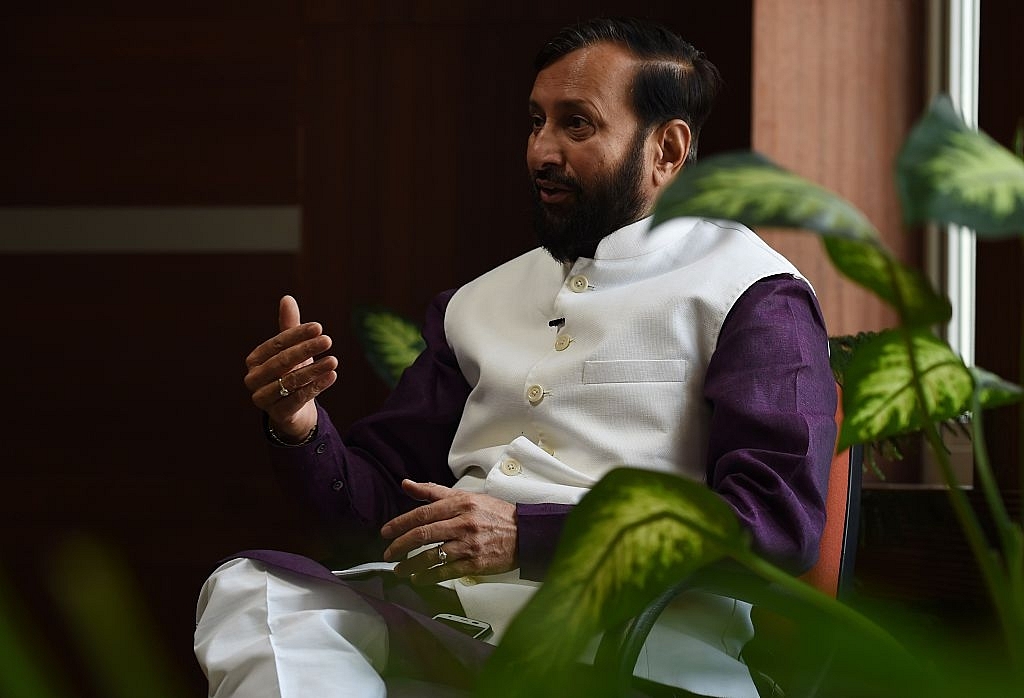Insta
NDA Holds Its Most Important Meet On Education After 2.5 Years In Office (And Achieves Nothing)

Prakash Javadekar ... new push scrap no-detention policy in schools. Photo credit: Money Sharma/AFP/GettyImages
Human Resource Development (HRD) Minister Prakash Javadekar chaired the sixty-fourth meeting of the Central Advisory Board of Education (CABE) on Tuesday (25 October).
The meeting was attended by the Skill Development & Entrepreneurship Minister, Youth Affairs and Sports Minister, the Ministers of State for HRD, Niti Aayog’s chief executive officer, education ministers of 21 states, representatives of 28 states and union territories, members of CABE, heads of autonomous organisations, vice-chancellors of universities, among others.
Fair to say the meeting was crucial.
The discussion revolved around the Right to Education (RTE) Act, particularly on the issue of deteriorating learning outcomes, the ‘no detention policy’ and the reintroduction of Class X board exams.
According to the HRD ministry’s press release, it was agreed that:
The NDA government has not shown any inclination to repealing the sectarian provisions of the RTE Act, which are applicable only to non-minority educational institutions. Having already spent two and a half years in office, it held probably the most important meeting on the matter yesterday but couldn’t even take up the matter of RTE’s sectarianism.
Even on the matter of low-hanging fruits, like repealing the ‘no detention policy’, it compromised with the states and will now probably come up with a ‘suitable’ amendment which will give states the freedom to choose whether they want to keep the policy or drop it.
The New Indian Express reported that the ministry is also planning to ‘constitute a new committee for formulating the new education policy and it is likely to be headed by an educationist.’ This decision, if true, raises two questions: Why did the government waste two and a half years taking suggestions from the public if it wanted an ‘educationist’ to formulate it? And was the NEP prepared by T S R Subramanian too mild or too radical? Given the HRD ministry’s reluctance to address the actual reforms in the RTE, it looks like it thinks TSR’s NEP was too radical (which it really isn’t).
Looking at the way the government has handled the education sector since it took charge in 2014, it is clear that it doesn’t have any agenda of reforms.
Introducing ElectionsHQ + 50 Ground Reports Project
The 2024 elections might seem easy to guess, but there are some important questions that shouldn't be missed.
Do freebies still sway voters? Do people prioritise infrastructure when voting? How will Punjab vote?
The answers to these questions provide great insights into where we, as a country, are headed in the years to come.
Swarajya is starting a project with an aim to do 50 solid ground stories and a smart commentary service on WhatsApp, a one-of-a-kind. We'd love your support during this election season.
Click below to contribute.
Latest